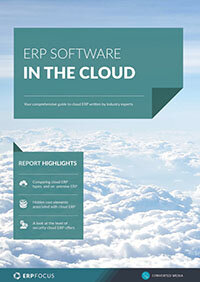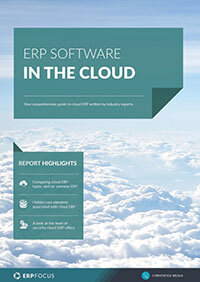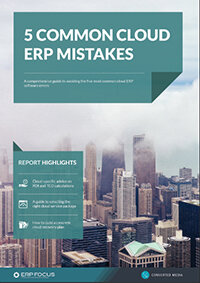Cloud ERP: Beware the Hype
It is not unusual for the word “hype” to appear in an article about cloud computing; they seem to go together like bread and butter. In this context, we refer to this definition of “hype”: “ (Slang) Exaggerated or extravagant claims made especially in advertising or promotional material”. Cloud computing is an interesting technology and has huge implications for future cloud ERP solutions, but even with that, there is still an irresistible urge to tell a better story than that, to suggest more without lying outright.
Take the following example out of an article praising ERP cloud computing – and this one does a far better job than most at keeping it real and reasonable:
“What are the cost savings associated with moving ERP to the cloud?… Operational costs, including IT support, power to run servers and server operating systems are reduced or eliminated."
“Reduced” is an accurate word, defensible, and still positive; “eliminated” is a suggestion with two problems:
1. When a CFO reads this article, he or she will discard “reduced” and begin formulating a mental model based on the math implied by “eliminated”. The value of cloud ERP suddenly becomes equal to the annual IT budget. With “eliminated”, he or she can start making decisions, with “reduced”, there is not enough information to know how appealing the prospect might be without further study.
2. Eliminating IT support, power, and server operating systems is a broad accomplishment. It’s pretty easy to imagine eliminating ERP application developers, ERP application support, and basis people. How about security roles and security access? Can that be farmed out, or does someone familiar with the org structure and the people in it need to retain that role? How about PC support and maintenance at both the corporate and local level? Does that become a business expense? Who administers email, keeps up with email updates, patches, and repair. Is email totally a cloud function? Are e-commerce and web applications cloud functions? How about EDI – does the care and feeding of EDI go to the cloud? Is anyone in the cloud charged with keeping up with new IT and ERP directions, and making certain the organization doesn’t miss or fall behind an important opportunity? Who integrates new acquisitions into the current ERP structure? Or do new acquisitions stop being integrated? Who interfaces with the business units to understand what the priority of ERP development objects should be? Or is every business unit allowed to contract with the cloud provider to customize as they see fit? Who oversees master data, and data governance? And if you accumulate enough of these peripheral functions, does someone end up being an IT supervisor?
So the statement suggests a mathematical possibility which is unlikely to be mathematically true, and that makes it hype. Unfortunately, the damage has already been done, the CFO has already issued marching orders, and once again, a great technology is overpromised and underperforms.
We need to learn from the past. When it comes to cloud ERP, we need to assess whether cloud ERP is right for a given situation, all the while, resisting the hype.
Free white paper

ERP Software in the Cloud
Get your free guide to cloud ERP software

Featured white papers
-

Five common cloud ERP mistakes
Get your comprehensive guide to avoiding the five most common cloud ERP errors
Download -

Related articles
-

Why you shouldn't underestimate cloud ERP consultant costs
Make sure to take the cost of a consultant into account when planning your cloud ERP budget
-

How the right ERP can help you launch a successful omnichannel business
Petersen Zhu, CEO of DigitBridge and Vibes Base, shares how to create a scalable omnichannel stra...
-

Cloud ERP vs on-premise ERP: an objective comparison
Are you choosing between cloud ERP and on-premise ERP? This balanced guide will help

